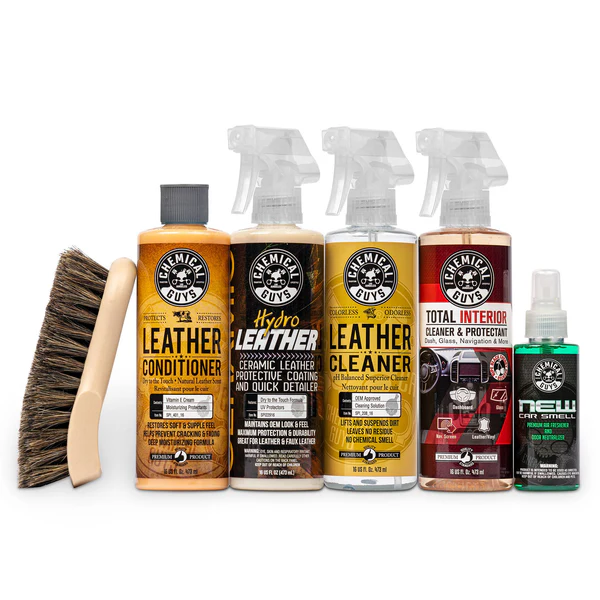What To Expect When You Contact An Auto Repair Team
Reaching out to an auto repair team for the first time can feel overwhelming—especially if your vehicle is making strange noises or has suddenly broken down. Whether you're dealing with a minor issue or a major repair, knowing what to expect can make the process smoother and far less stressful.
From initial contact to final quality checks, professional auto shops follow a structured approach to ensure your vehicle receives the care it needs. In this guide, we’ll walk you through every step of the repair journey, including cost explanations, timelines, communication, and red flags to watch out for.
If you're looking for reliable, expert service, don’t hesitate to contact Peninsula Auto Clinic today and experience top-tier automotive care firsthand.
No. 1
What’s the Initial Process?
When you reach out to a professional repair team, expect a clear and structured process designed to address your vehicle’s needs efficiently.
Here’s what typically happens:
First Contact: Your initial call or visit sets the tone. The team will ask about your car’s symptoms and promptly schedule an inspection.
Vehicle Assessment: Certified technicians will perform a thorough inspection using diagnostic tools to identify the issue accurately.
Documentation: Your vehicle’s details and your contact information will be recorded to ensure a smooth and traceable repair process.
Understanding this process from the start helps set expectations and ensures transparency throughout your repair experience.
No. 2
How Are Costs Explained?
A reputable shop will always provide a detailed and transparent cost breakdown.
Understanding the Estimate
A typical estimate includes:
Customer and vehicle information
Parts required
Labor charges
Additional fees (if any)
This transparency ensures there are no hidden costs.
Parts Pricing
Parts can vary in price depending on the type:
OEM (Original Equipment Manufacturer)
Aftermarket
Remanufactured
Used
Each option has pros and cons, so don’t hesitate to ask for guidance on what’s best for your vehicle.
Labor Charges
Labor costs are based on hourly rates and the estimated time needed for the repair. While specialists may charge more, their efficiency often saves time—and money.
Miscellaneous Fees
You might see charges for shop supplies, chemicals, or waste disposal. Ask for clarification to understand exactly what you’re paying for.
Chemical Guys
Your ultimate destination for top-quality car care products and detailing supplies that deliver professional results and a showroom shine
No. 4
What About Repair Timelines?
Timelines can vary, but a professional team will provide a realistic estimate based on several factors.
Initial Assessment Phase
This involves a detailed inspection and typically takes a few hours. Afterward, you’ll receive a rough estimate of the completion date.
Insurance and Parts Delays
If your repair involves insurance approval or specialized parts, expect potential delays. Insurance processes can take days, and some parts may need to be ordered, adding a week or more to the timeline.
Repair Duration
Minor fixes (e.g., dents, oil changes): 1–3 days
Major repairs (e.g., engine or transmission work): 1–3 weeks
Final Checks
Once repairs are complete, your vehicle undergoes quality control and a test drive. This final step usually takes one day to ensure everything is functioning perfectly.
No. 5
Will Updates Be Provided?
Feeling left in the dark during repairs is frustrating. That’s why communication is key.
Regular Check-Ins
Reputable shops will call or text you with updates, especially if there are delays or additional issues discovered during the repair.
Unexpected Delays
If parts are delayed or new problems arise, you’ll be notified before any extra work is done.
Your Role
Don’t hesitate to reach out if you haven’t heard anything. Staying proactive ensures you’re always informed and in control.
No. 6
What Paperwork Is Required?
Bringing the right documents can streamline the repair process and prevent delays.
Vehicle Information
Have your car’s registration and VIN ready. This helps the team identify your vehicle accurately.
Insurance Details
If your repair involves an insurance claim, bring your policy number and provider information to speed up the process.
Personal Identification
A valid driver’s license or ID may be required to confirm ownership and authorize the repair.
Previous Repair Records
If available, bring any past service records. These can help diagnose recurring issues and provide valuable context for the technicians.
No. 7
Are Recommendations Often Given?
Auto repair teams often suggest additional services—but not all are urgent.
Preventive Maintenance
Recommendations like oil changes or tire rotations are intended to prevent future issues. These are generally worth considering for long-term savings.
Non-Essential Fixes
Some suggestions may not be critical. Ask about urgency and impact to prioritize what truly needs attention.
Second Opinions
If something feels unnecessary or overly pushed, don’t hesitate to get a second opinion. Trust your instincts and ask questions.
No. 8
How Is Quality Ensured?
Reputable shops follow strict standards to ensure your vehicle is safe and road-ready.
Certified Technicians
Look for ASE-certified mechanics. Their training ensures repairs meet industry standards.
Quality Control Checks
After repairs, your vehicle undergoes thorough inspections and a test drive to confirm everything is functioning correctly.
Warranty Offers
Many shops offer warranties on parts and labor, giving you peace of mind and protection against future issues.
Customer Feedback
Trusted teams value your feedback and often follow up post-repair. Your input helps them maintain high standards and improve service.
No. 9
What Red Flags to Notice?
Not all repair shops are created equal. Watch for warning signs that may indicate unprofessional or dishonest service.
Poor Organization
A messy, disorganized shop may reflect a lack of attention to detail—which could extend to your vehicle.
No Clear Estimates
If a shop avoids giving written estimates, be cautious. Transparency in pricing is a hallmark of trustworthy service.
Scare Tactics
Beware of mechanics who pressure you into unnecessary repairs using fear-based language. Honest professionals explain issues clearly and calmly.
Lack of Credentials
Technicians should be willing to show their certifications. If they hesitate or can’t provide proof, consider it a red flag.
Trust your instincts when choosing a shop. Spotting these red flags early, as noted in this
helpful guide, can save you headaches later.
Takeaways
Navigating auto repairs doesn’t have to be stressful. With the right knowledge, you can approach the process confidently—from the first phone call to the final test drive. Understanding the repair process, cost breakdowns, timelines, and quality assurance measures empowers you to make informed decisions.
Always stay proactive, ask questions, and trust your instincts. With this knowledge, you'll confidently handle repairs, ensuring your vehicle gets the care it deserves while avoiding potential pitfalls.
Looking for resources?
At Hello Lovely Living, we aim to empower you to earn and save money and time while benefiting from our expansive network of home, life, wellness, travel, work-from-home, career, and business resources and opportunities. Discover a wealth of tools to support your journey.































